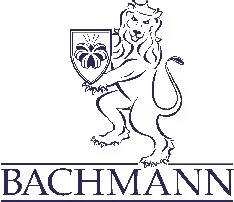Article by Dominique Christin, Bianchi Carnicé & Christin de Coulon,
Originally published in Bachmann Group Communiqué: Issue 3 August 2004
The Agreement for the Free Movement of Persons ("ALCP") with the (then) 15 EC Member States associated with the low level of estate duties and the so called "lump sum taxation" make Switzerland a place of residence very attractive taxwise for EC nationals.
RESIDENCE PERMITS
The grant of residence and work permits to nationals of EC Member States has become much easier since the ALCP entered into force (June 1st, 2002 for phase I and June 1st, 2004 for phase II). The ALCP gradually introduces in Switzerland the free movement of persons for nationals from those EC Member States. An additional protocol is expected to operate the extension of ALCP to the 10 new EC Member States as from May 2005. The free movements also apply to nationals of Iceland, Norway and Liechtenstein.
|
UNDER THE CURRENT PHASE (PHASE II) OF THE ALCP (SINCE JUNE 1ST, 2004):
|
ESTATE DUTIES AND GIFT TAXES
In Switzerland, inheritance and gift taxes are levied at the place of residence of the deceased (for inheritance duties purpose) or the donor (for gift taxes purpose). Unless provided otherwise in an applicable double taxation treaty, inheritance and gift taxes are due in respect of any moveable assets worldwide and immovable property in Switzerland. For immovable property, the taxes will be levied according to the rules of the canton where the property is located.
The tax rates increase with the amounts involved and depend on the degree of relationship between the deceased/donor and the recipient. The tax levied in the case of transfer to direct relatives and spouses is normally not higher than 5% or 6% of the part of the estate received. On the other hand, the tax due in case of transfer between unrelated parties may go up to 50% of the amount received.Currently, no inheritance or gift tax is levied at all on the federal level.
On the cantonal level, the situation varies very much from one canton to another. The undefeated inheritance and gift tax regimes are in the German speaking part of Switzerland. In particular, the canton of Schwitz levies no such taxes at all. The canton of Lucerne is also well known because gifts are not taxed there.
Over the last five years, several other cantons have decided to reduce the burden of inheritance and gift taxes. This trend has extended to the French speaking part of Switzerland. Following the example of the canton of Valais, several French speaking cantons have decided to reduce or abolish the taxes on the transfer of assets to the children and spouses. In the canton of Vaud, a reduction of taxes on transfer between direct relatives and spouses has been decided on May 16, 2004.
The canton of Geneva has completely abolished the estate duties between direct relatives (parents, grand-parents, children, grandchildren) and between spouses, as from June 1st 2004. Gift taxes have also been abolished in Geneva between direct relatives and spouses with respect to any gift made on or after June 1st 2004. These new Geneva tax advantages do not extend to residents benefiting from the so called "lump sum taxation". In such case, only a relief of 50% of the estate duties shall apply, provided that the deceased was non-Swiss, never worked in Switzerland and has been a resident in the canton of Geneva since January 1st 1979.
THE LUMP SUM TAXATION
What is the lump sum taxation? In principle, individuals with residence in Switzerland are taxed based on their worldwide income. In addition, a net wealth tax is levied at cantonal and communal levels. As an alternative to this ordinary regime, non- Swiss nationals may elect for lump sum taxation if they are not engaged in gainful activities in Switzerland (or abroad for the service of a Swiss company) and become resident in Switzerland for the first time or after a minimum ten years absence.
If these two conditions are met, Swiss nationals are also eligible for the lump sum taxation but only during the (calendar) year of their arrival in Switzerland. This limited entitlement is very interesting for Swiss nationals: they may during this limited period of time dispose of commercial or industrial assets without Swiss capital gain tax liability. Capital gains realised on private assets are normally not taxable in Switzerland.
The difference between the ordinary and lump sum regimes consists in the taxable base of assessment: whereas an ordinary taxpayer will be assessed on his worldwide income and assets (except for immovable property abroad and unless provided otherwise in an applicable double tax treaty), a lump sum taxpayer will be assessed on a lump sum base. The lump sum is based on the cost of living. The base of assessment is agreed upon with the tax authorities and reviewed regularly. It may not be lower than 5X the rental value of the main accommodation used by the taxpayer and his family. Several cantons have introduced fixed minimum requirements.
The key points of the lump sum system are: first, there is no obligation to report to the Swiss tax authorities the foreign assets and income. Second, the taxpayer under the lump sum system remains eligible under the double taxation treaties concluded with Switzerland. The treaties with a number of countries provide for certain limitations of benefits if the Swiss resident is assessed under the lump sum system. These limitations may however be accommodated, in accordance with the conditions imposed by the treaties. These countries are, inter alia, France, Germany, Austria, Belgium, Italy, Norway, Canada and the United States.
The content of this article is intended for general information purposes only; we are at your disposal to give a specific advice and any complementary information.
